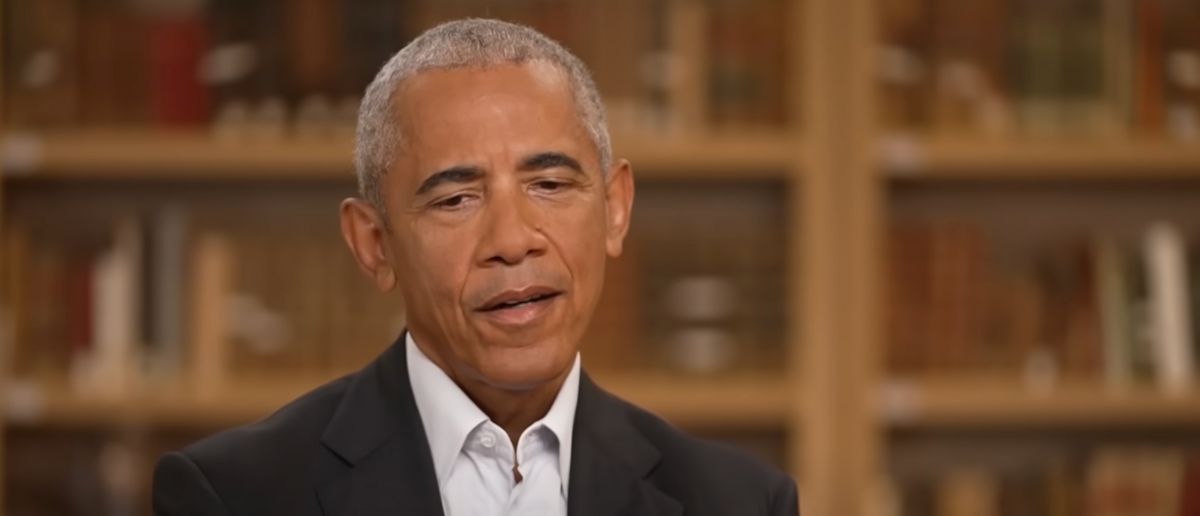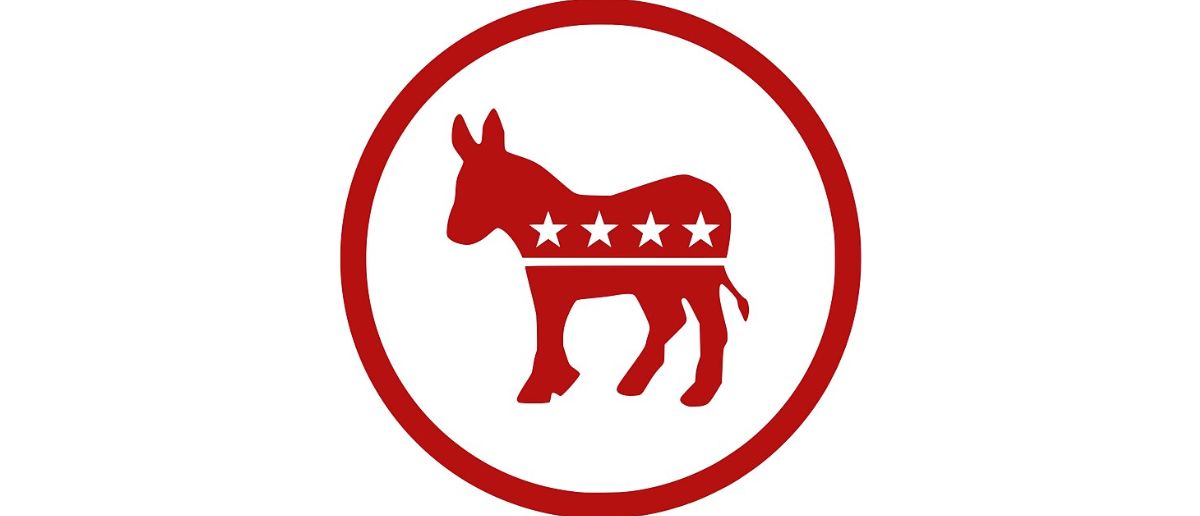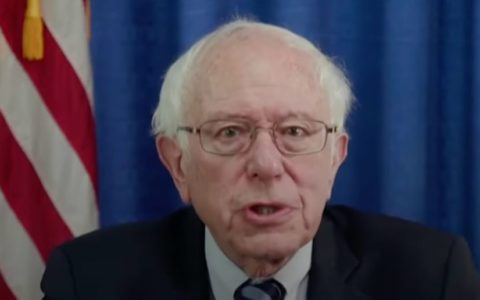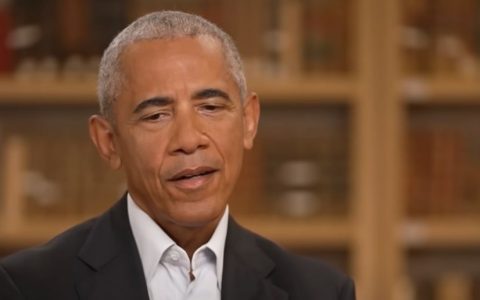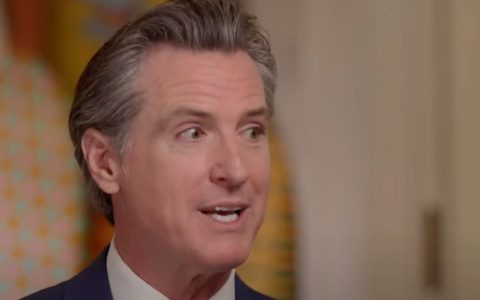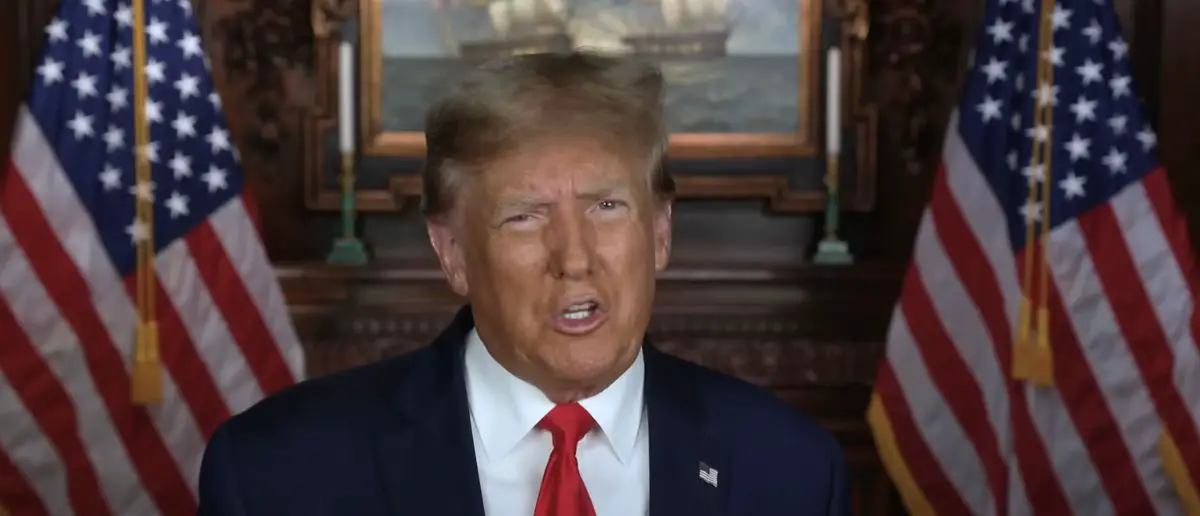
President Donald Trump has made a risky move recently. Even his closest allies are skeptical.
And one ally just went on Fox News to drop this major confession about President Trump.
Trump’s Tariff Triumphs Surprise Even Trump Supporters
On Wednesday, economist Steve Moore appeared on Hannity and could barely contain his enthusiasm for Trump’s maneuvers, particularly in the escalating tariff war with China. “I’m going to confess to your audience, I was a ‘doubting Thomas’ myself,” Moore said. “I didn’t know whether this strategy would work. I didn’t know whether Trump could really pull this off. But boy has he.” What started as a risky gamble is now looking like a masterstroke, forcing nations to pick sides and putting America firmly in control.
Trump’s latest move came Wednesday when he announced a 90-day pause on reciprocal tariffs for most countries—excluding China—after kicking things off on April 2. That initial salvo targeted a select group of nations with tariffs mirroring their own against the U.S. The stock market, as Fox host Sean Hannity pointed out, responded with a surge, signaling investor confidence in Trump’s approach. Moore, grinning ear to ear, admitted he hadn’t seen it coming. “I couldn’t stop smiling,” he said, marveling at how Trump’s instincts defied the skeptics, including himself.
The tariff pause is no retreat; it’s a calculated pivot. By easing up on other nations, Trump is isolating China, which faces a punishing 125% tariff as of Wednesday, up from 104% just a day earlier. This escalation followed China’s retaliatory hike to 84%, a move that only deepened the standoff. Trump’s original “Liberation Day” announcement on April 2 laid the groundwork, slapping a 34% tariff on China and scaling others based on how much each country taxed American goods. The message was clear: play fair, or pay up. China’s refusal to back down has only strengthened Trump’s resolve.
Moore sees this as more than a trade spat—it’s a defining moment for global alliances. “This is a USA versus China contest,” he told Hannity. “We’re going to really learn over the next couple of weeks, another couple of months, Sean, who our allies really are.” European nations, Japan, and others now face a stark choice: align with the U.S. or cozy up to China. Moore didn’t mince words about the consequences of choosing poorly. “I think there’s going to be a high price to be paid,” he said, suggesting that nations siding with China could find themselves on the wrong end of America’s economic might.
Trump’s strategy hinges on leverage, and he’s wielding it like a seasoned dealmaker. By pausing tariffs on most countries, he’s offering a carrot to those willing to negotiate fairer trade terms. “There’s still a lot of work to be done, Sean,” Moore noted. “We have to now work with all of our trading partners to get every single one of them to reduce their tariffs and their unfair trade restraints on America.” The pause buys time for diplomacy, but it also keeps the pressure on. Nations that drag their feet risk losing their reprieve when the 90 days are up.
China, meanwhile, is feeling the heat. The 125% tariff is a direct response to Beijing’s tit-for-tat escalation, and it’s a signal that Trump isn’t bluffing. Moore framed the broader stakes: “No, you’ve got to choose Europe. You’ve got to choose Japan. You’ve got to choose. Are you with us? Are you with China?” This isn’t just about tariffs; it’s about asserting American dominance in a world where China’s influence has grown unchecked for too long. Trump’s willingness to go toe-to-toe with Beijing is forcing allies to reassess their priorities.
The market’s upbeat reaction Wednesday suggests Wall Street is buying what Trump’s selling. Investors see a president who’s unafraid to shake things up, even if it means short-term turbulence. Moore, once a skeptic, now believes the endgame is in sight. “I think at the end of the day—I said this three weeks ago on your show, and I’ll say it again—I think we’re going to have freer and fairer trade, and that works for America,” he told Hannity. It’s a vision of trade where the U.S. sets the terms, not one where it’s bled dry by lopsided deals.
Critics might call Trump’s tariffs reckless, but his supporters see a leader who’s finally fighting back. For decades, American workers and businesses have endured unfair trade practices—subsidies, tariffs, and regulatory barriers—that tilted the playing field. Trump’s approach flips the script, demanding reciprocity and backing it with action. The 90-day pause shows he’s not out to punish allies but to bring them to the table. China, on the other hand, seems determined to test Trump’s resolve, and so far, it’s losing ground.
Moore’s optimism is contagious, but he’s clear the job isn’t done. “Trump is in the driver’s seat right now,” he said, acknowledging the heavy lifting still ahead. Negotiating with dozens of countries to lower their trade barriers won’t be easy, but Trump’s track record suggests he thrives under pressure. His ability to turn doubters like Moore into believers speaks to his knack for defying expectations. The tariff war is a high-stakes chess game, and Trump is playing to win—not just for himself, but for an America tired of being taken advantage of.
As the world watches, Trump’s tariff bet is doing more than reshaping trade—it’s reasserting American leadership. Nations that value their economic ties with the U.S. will likely fall in line, while those that don’t will face the consequences. Moore’s words ring true: this is about finding out “who our allies really are.” With Trump at the helm, the U.S. isn’t just navigating the global economy—it’s steering it, and doing so with a confidence that’s hard to ignore.
China Will Blink Sooner Or Later
President Donald Trump’s move to slap a 125% tariff on Chinese imports is already sending shockwaves through global markets, and according to China expert Gordon Chang, it’s only the beginning. The U.S. has taken a decisive stand to protect its economy from China’s predatory trade practices, and other nations are likely to take notice. By closing off the American market to many Chinese goods, Trump is forcing Beijing to scramble for new buyers—a move that could reshape international trade in America’s favor.
“What’s going to happen is other countries are going to have to follow Trump’s footsteps,” Chang said Wednesday on NewsNation. “Trump’s tariffs close off the U.S. market to many Chinese products. China’s got to sell them someplace else… other countries’ industrial sectors are going to be decimated unless they protect their country.” This isn’t just about the U.S. standing tall; it’s about setting a precedent that could inspire a global pushback against China’s economic overreach. Nations from Europe to Asia may soon find themselves compelled to adopt similar measures to safeguard their own industries.
Chang, who recently penned Plan Red: China’s Project to Destroy America, sees Trump’s tariffs as a wake-up call for the world. He predicts a domino effect, with countries raising their own barriers to prevent China from flooding their markets with cheap goods. “So, I think you’re going to see tariffs go up on Chinese goods around the world,” Chang said. This global shift would mark a significant win for Trump’s America First agenda, proving that his economic vision resonates far beyond U.S. borders.
The ripple effects of Trump’s tariffs could force Chinese President Xi Jinping into a corner, though Chang doubts Xi will rush to negotiate. “That’s what Xi should do. That’s the economically rational thing,” Chang said. “The problem is that Xi Jinping has configured the Chinese political system so that only the most hostile answers are considered acceptable, which boxes himself in.” Xi’s reluctance to compromise may stem from internal pressures within the Communist Party, where appearing weak could jeopardize his grip on power. For now, Trump holds the upper hand, leveraging America’s economic might to dictate the terms of engagement.
“I don’t think they’re going to figure it out this week,” Chang told NewsNation, signaling that Xi’s stubbornness could prolong the standoff. Yet, this delay only strengthens Trump’s position, as the U.S. continues to fortify its economy while China grapples with shrinking markets. The tariffs are not just a short-term tactic; they’re part of a broader strategy to weaken China’s ability to dominate global trade—a strategy that aligns with Trump’s long-standing commitment to putting American workers and businesses first.
Beyond tariffs, Chang points to the strategic genius of reducing reliance on Chinese manufacturing. By encouraging companies to move factories to Central America, the Trump administration could stabilize neighboring economies and curb migration pressures at the U.S. border. This forward-thinking approach tackles multiple challenges at once—boosting American influence in the region while creating jobs closer to home. It’s the kind of pragmatic leadership that has defined Trump’s return to the White House.
Equally critical is the push to bring industries like semiconductor fabrication and pharmaceuticals back to American soil. For too long, the U.S. has outsourced these vital sectors to China, inadvertently fueling Beijing’s military ambitions. “China uses our trade proceeds to configure its military, which is basically designed to fight America,” Chang said. “That’s just morally and strategically wrong to give them the money to do that.” Trump’s tariffs are a direct counter to this dangerous dynamic, starving China of the funds it needs to threaten global stability.
The moral clarity of Trump’s trade policy is undeniable. By prioritizing American security and prosperity, he’s exposing the flaws of decades of naive trade deals that enriched China at the expense of U.S. workers. Chang’s analysis reinforces the urgency of this shift, warning that continued dependence on Chinese goods could have catastrophic consequences.
Stay tuned to the DC Daily Journal.

